TEDME Tutorials
Brief introduction of TEDME
TEMDE Short presentation
Overview of voting, Q&A and survey questionnaires with TEDME:
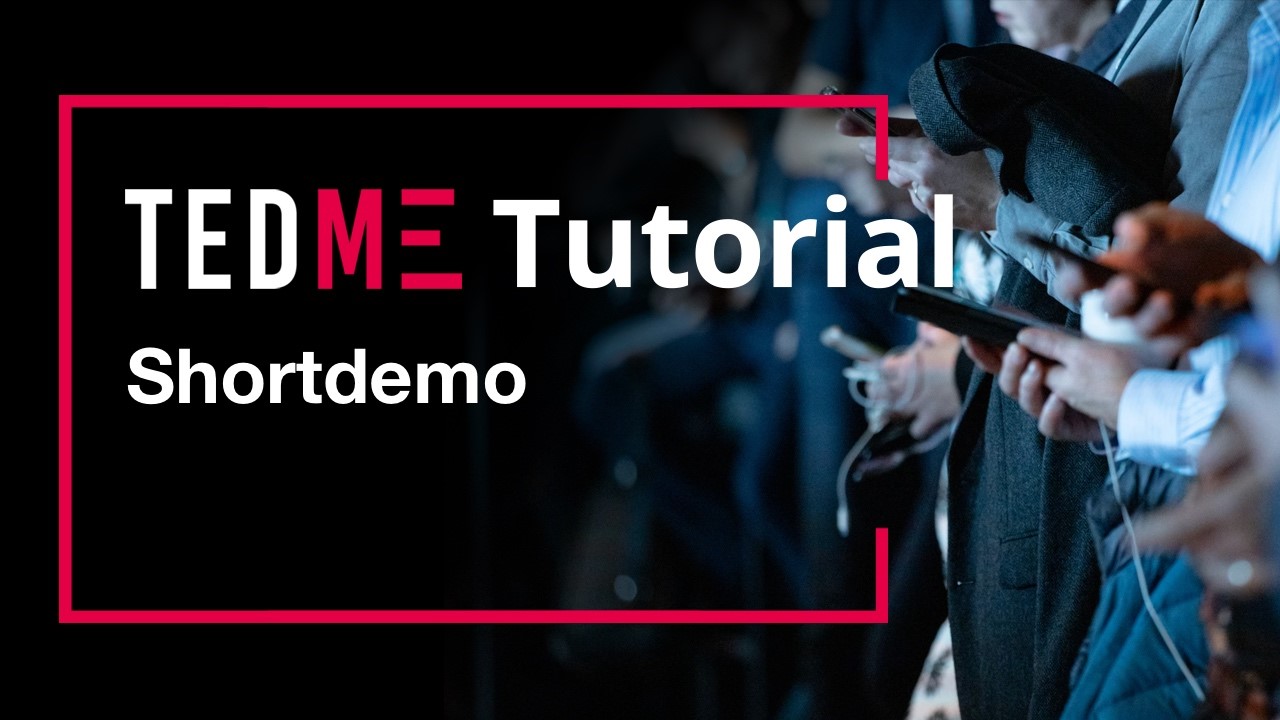
TEDME Auth brief introduction
Elective events including participant management with TEDME explained quickly and concisely:
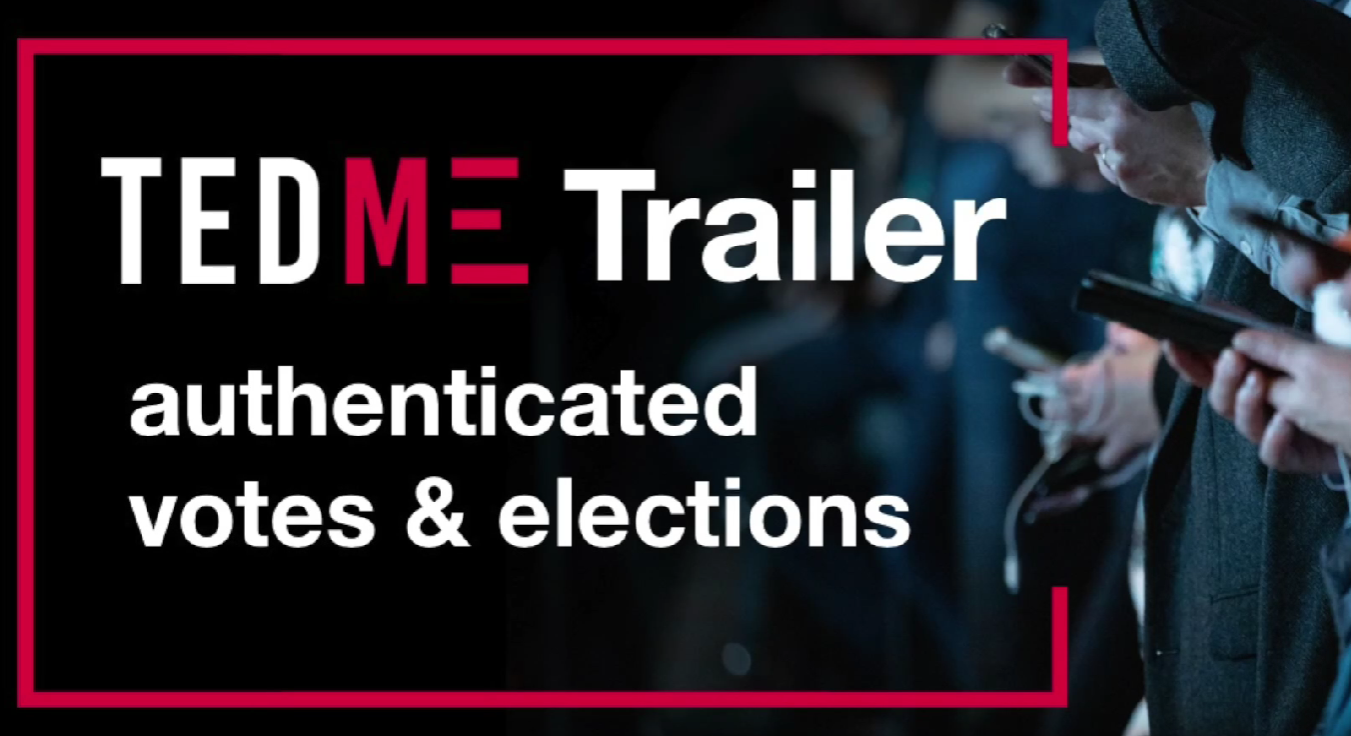
Question Typ
What types of questions are there in TEDME? We present all the options in a nutshell:
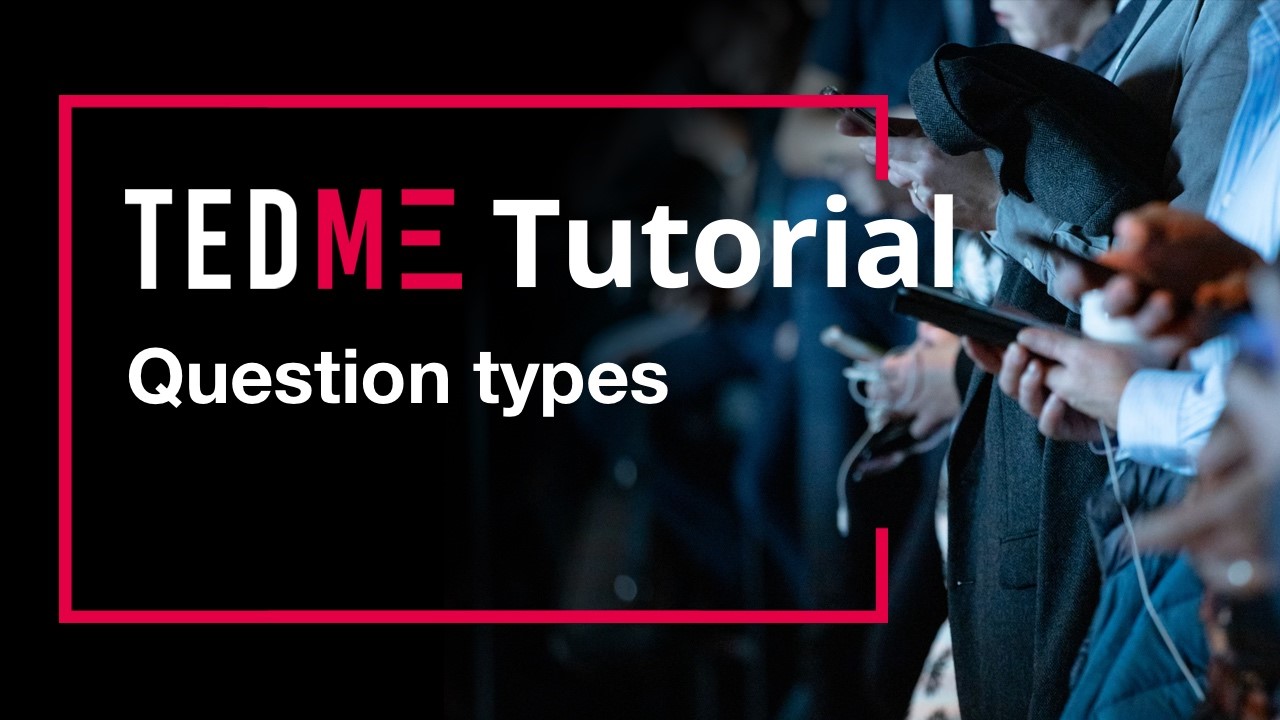
How to use TEDME
Create voting
To create a voting in TEDME to:
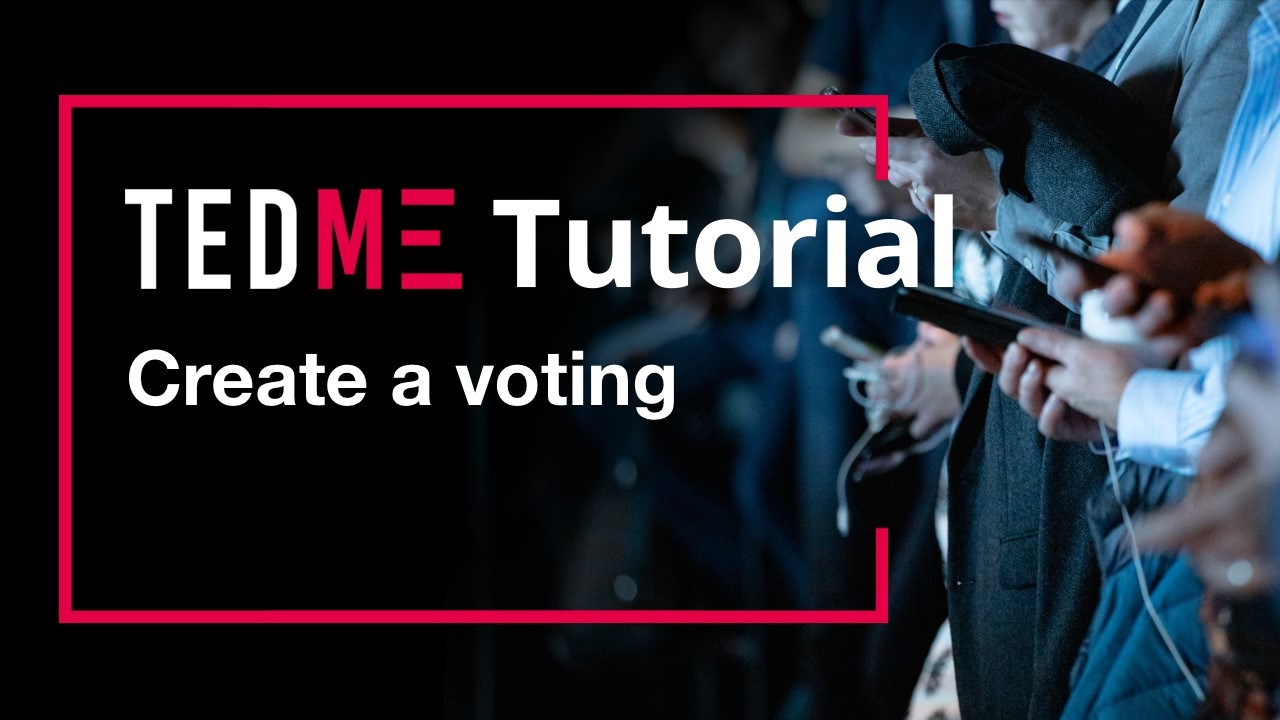
Carry out voting
How to conduct a voting in TEDME through:
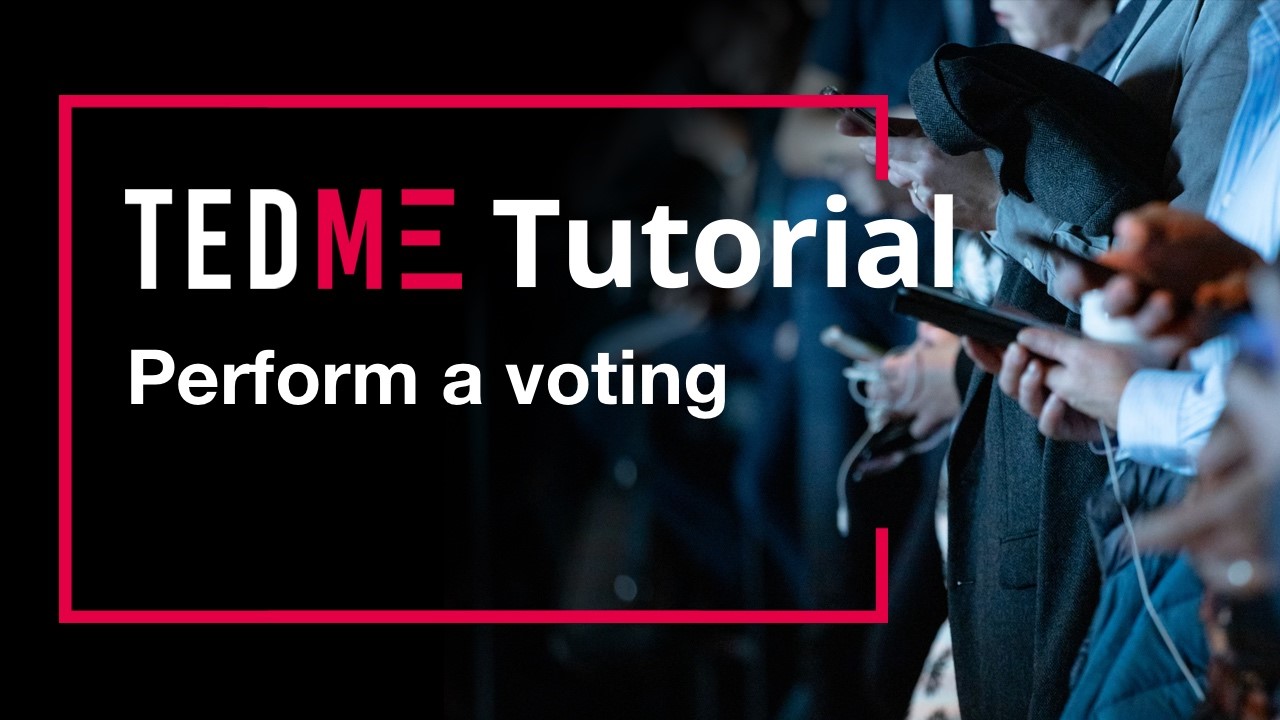
Create slide presentation
How to set up a presentation including slides:
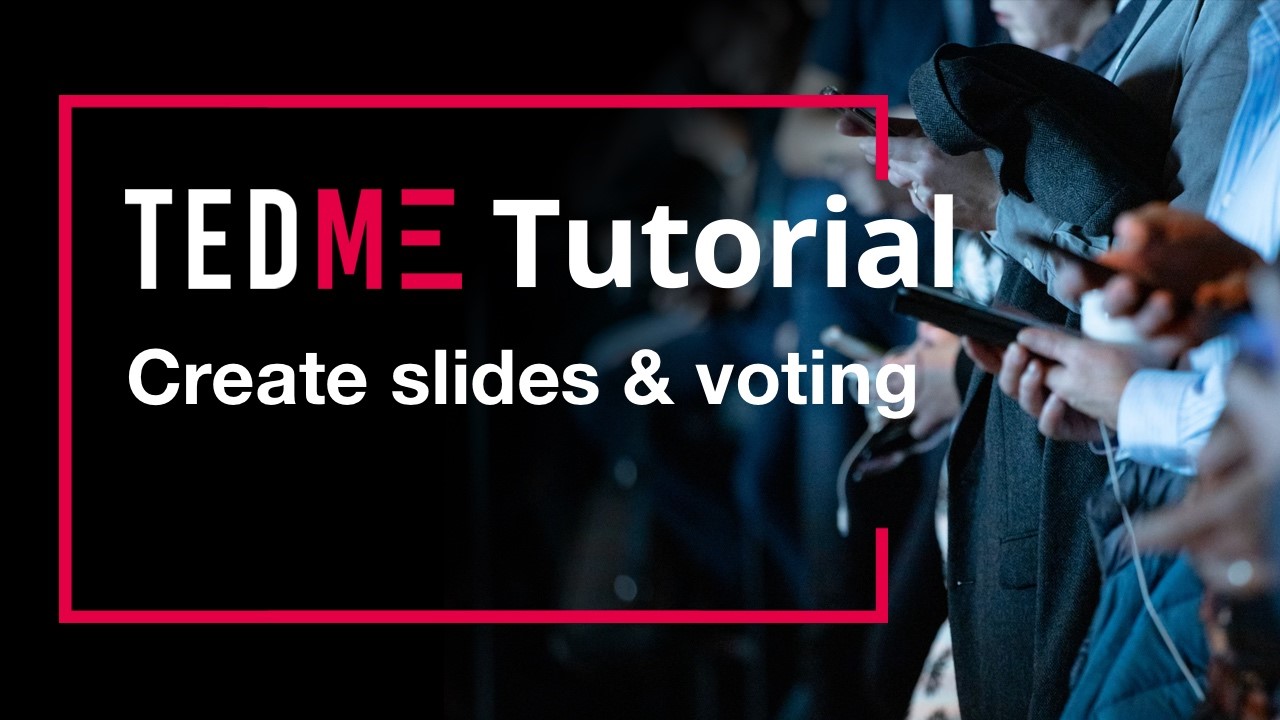
Perform slide presentation
Give a talk - including Q&A, chat and everything that goes with it:
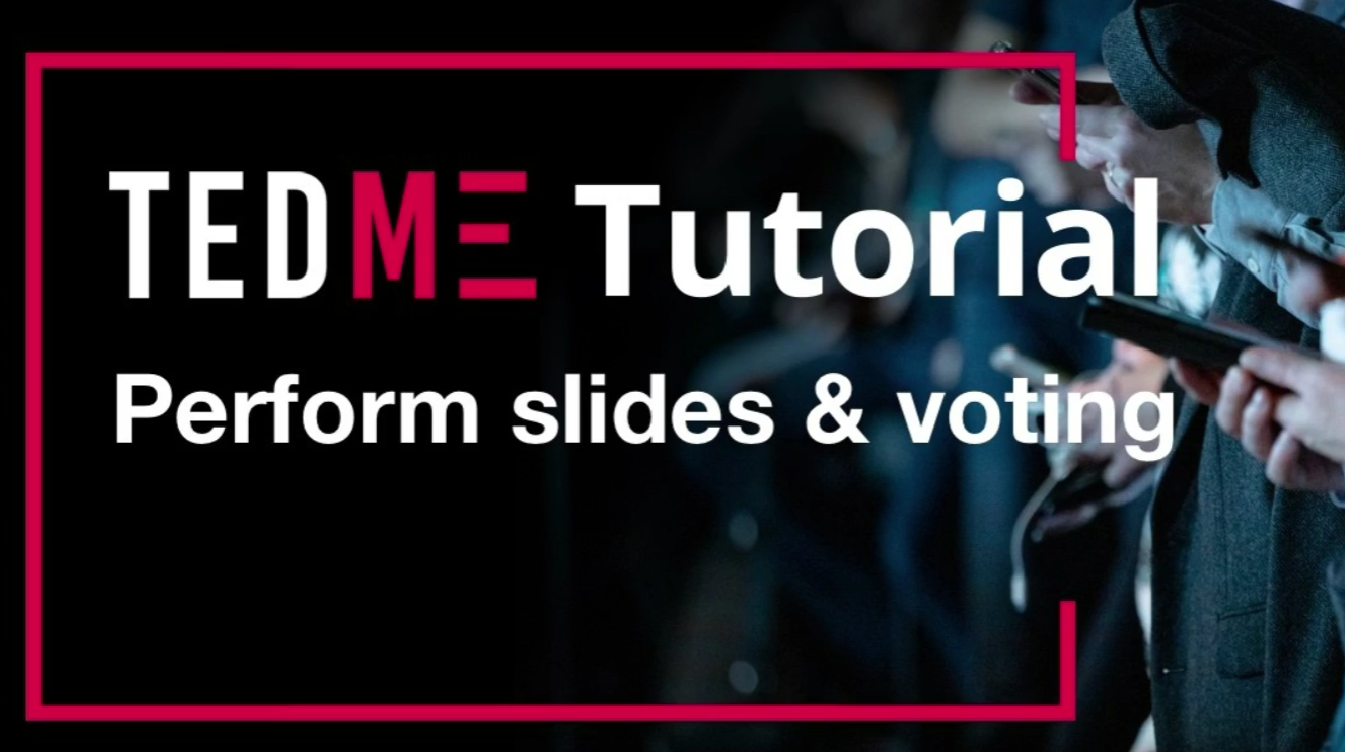
Create survey
Whether survey, asynchronous voting or feedback form. Here you will learn how to easily create our survey questionnaires:
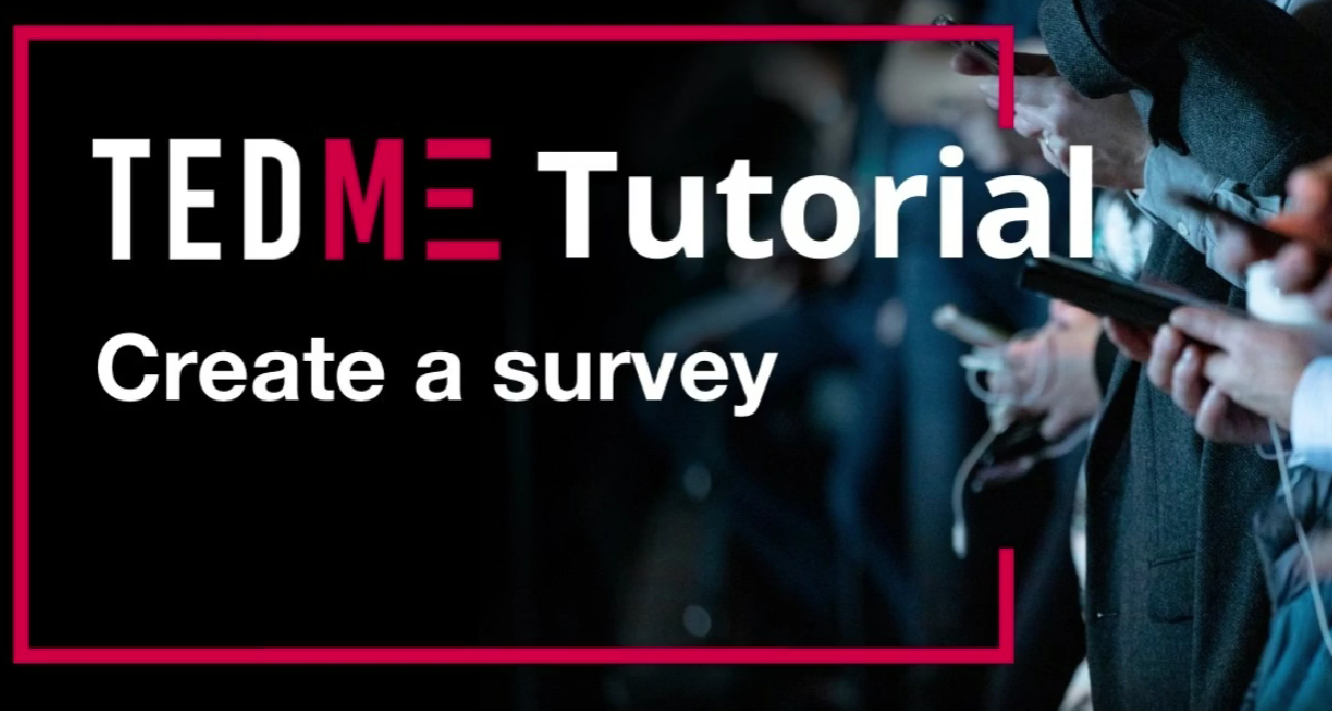
Conduct surveys
We will show you how you can use this in practice on the basis of a survey questionnaire that has already been created:
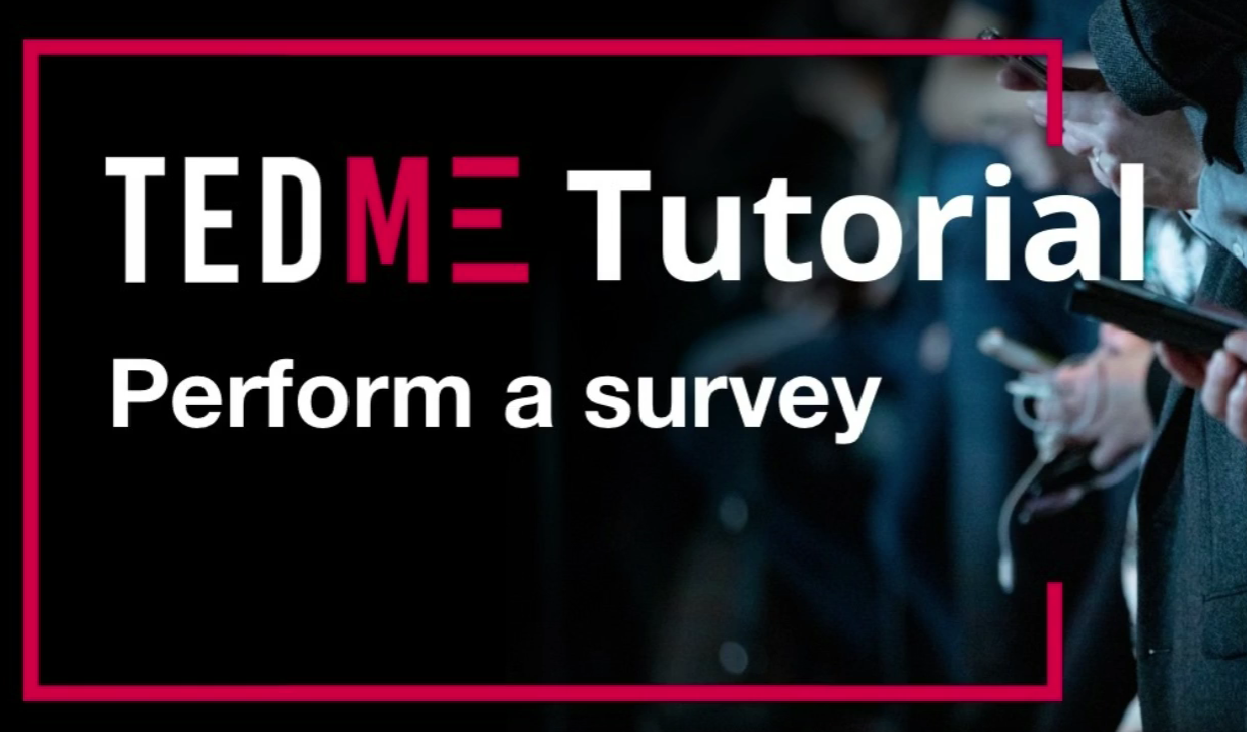
Create / perform Q&A
How to create and conduct a Q&A session without questions and slides:
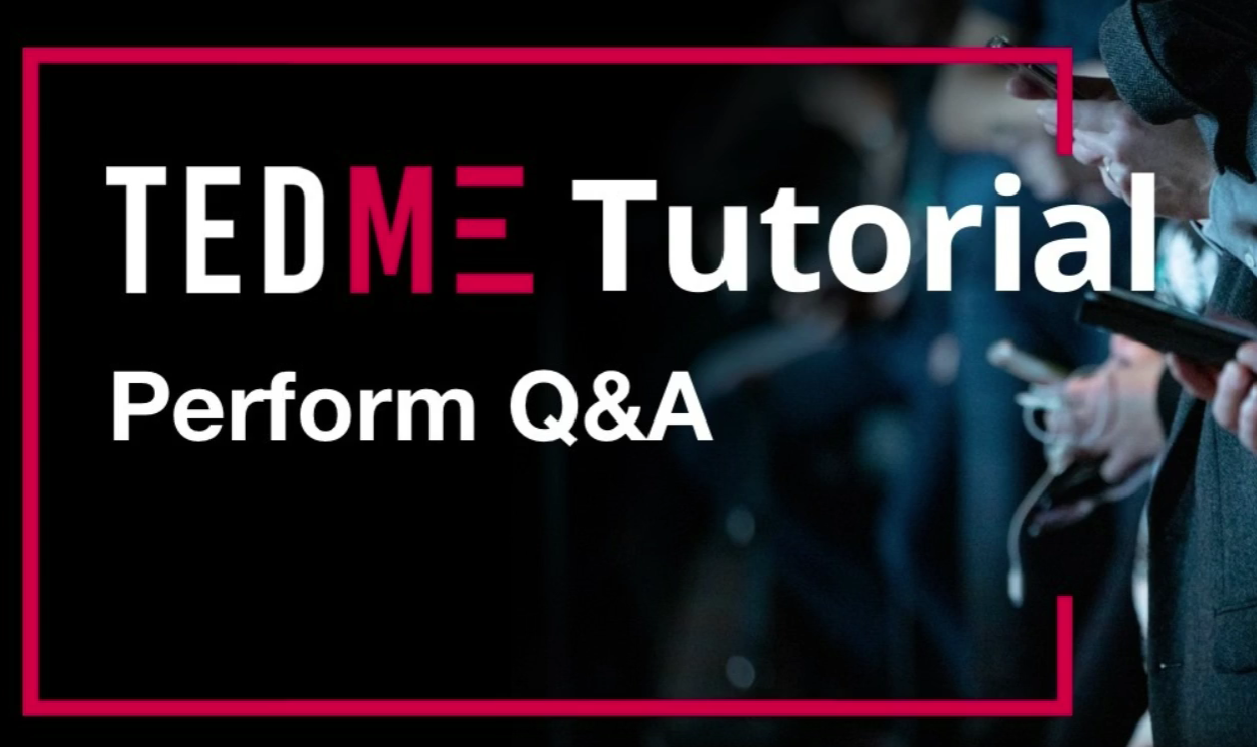
chat
You and your participants can easily communicate with each other via the integrated chat:

Co-moderator mode
For example, a co-moderator supports a presentation or event by administering the Q&A questions and chat messages:

Tedme-Auth
A comprehensive guide and explanation of the TEDME-Authentication module for member and elective events

Gamification of TEDME
Create knowledge game
In this tutorial, we explain how to create this Jeopardy-style quiz:
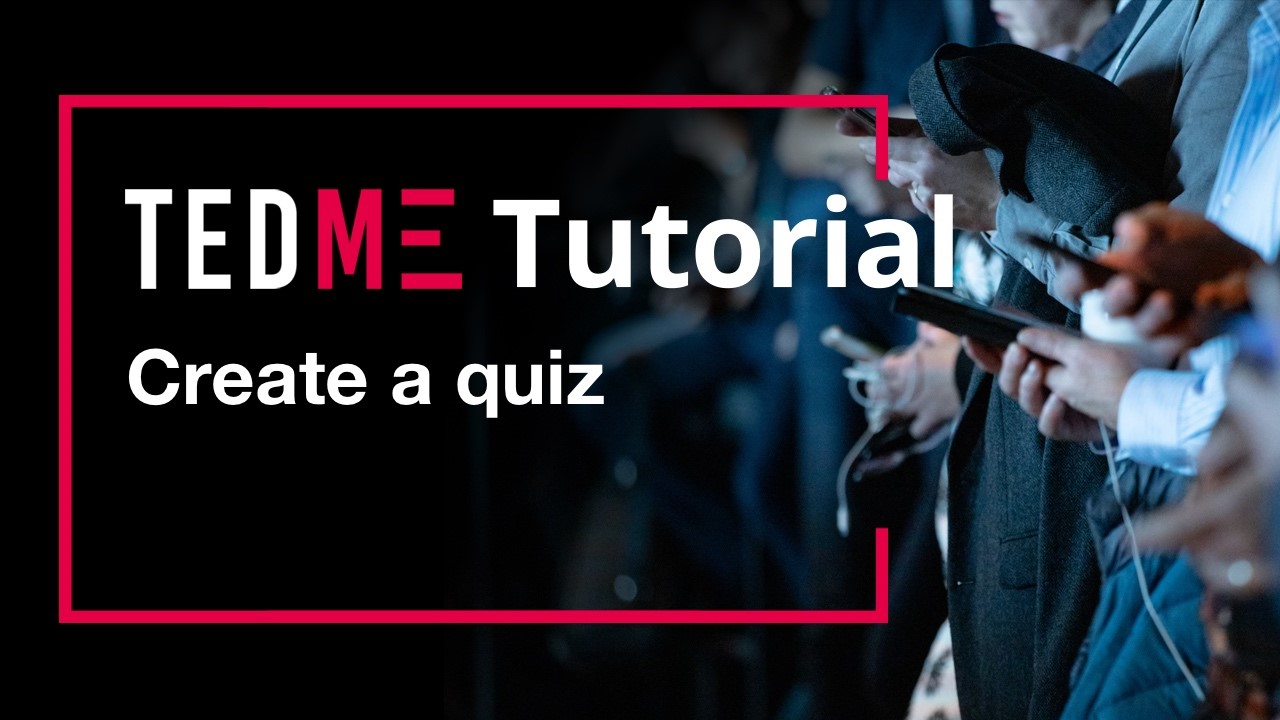
Carry out knowledge game
We play against each other with different teams and show you the winner with TEDME determine:
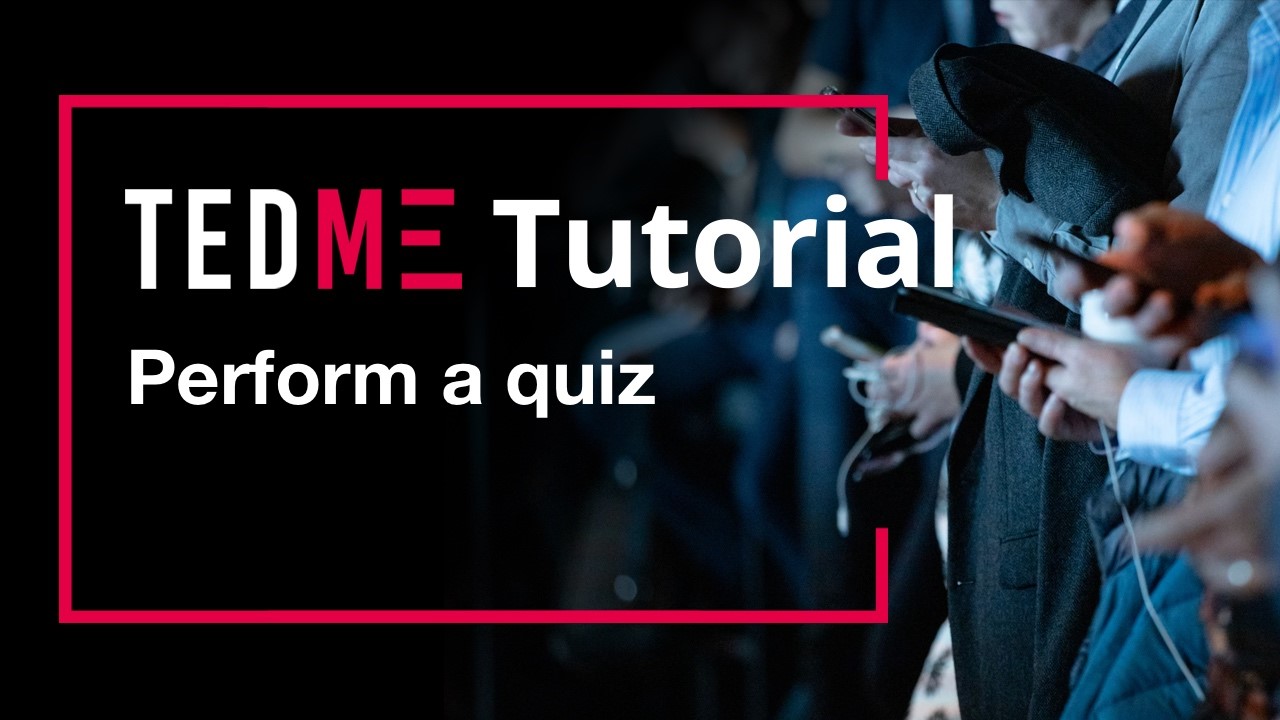
Knowledge tournament
How to create and play a knowledge tournament:
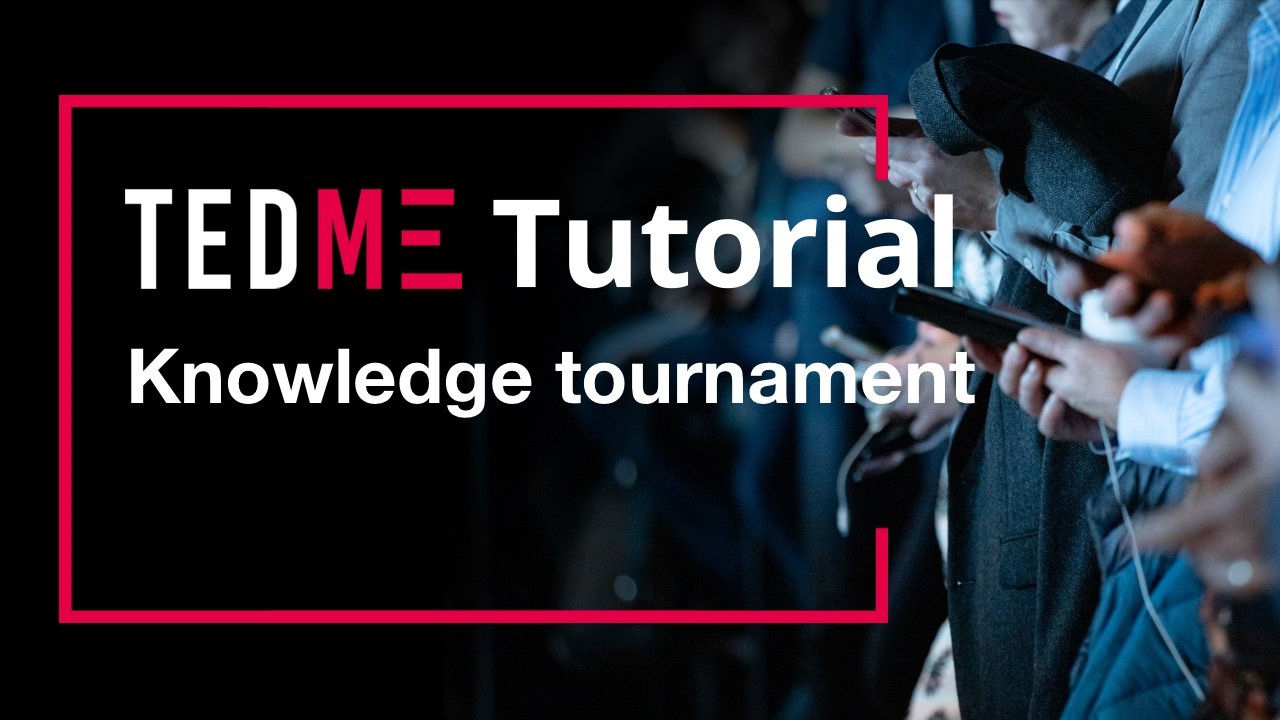
Preparation and follow-up for TEDME
Project settings
You can define your logo, your colour scheme and your own welcome texts in the project settings:

Lecture settings
Here we present the setting options for your presentations. This includes the participant view, webinar mode, chat, Q&A and language settings:

Analyses
You can see all the voting results, viewer questions from the Q&As and the results of the knowledge games and surveys in the analyses:



